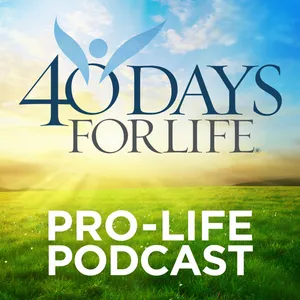Podcast Summary
US Supreme Court upholds Voting Rights Act in Alabama: The US Supreme Court ruled that Alabama's new congressional districts likely violated the Voting Rights Act by diluting black voters' influence, rejecting the state's argument that race should not be considered in districting unless there's intentional discrimination.
The US Supreme Court made a surprising ruling in favor of black voting rights in Alabama, going against the trend of weakening the Voting Rights Act in recent years. The court found that Alabama's new congressional districts likely violated the act by diluting the influence of black voters, as only one district out of seven was a majority-black district in a state where over a quarter of the population is black. The court also rejected Alabama's argument that race should not be taken into account when drawing voting districts unless there's evidence of intentional discrimination. This ruling is significant as it shows that the Voting Rights Act still has some teeth, despite previous rulings that weakened its racial protections.
Supreme Court upholds Voting Rights Act, but concerns remain: The Supreme Court's recent ruling kept the Voting Rights Act in place, but Alabama and other states must redraw congressional maps, and concerns about racial discrimination in redistricting persist.
The Supreme Court's recent ruling in Moore v. Harper upheld Section 2 of the Voting Rights Act, keeping it in place despite expectations that it might be weakened. However, this does not mean the end of the story for the Voting Rights Act. Alabama, and possibly other states, will need to redraw congressional maps in response to this ruling. Additionally, a case out of Arkansas about who can bring Section 2 cases is likely to be appealed to the Supreme Court soon. Despite the ruling, concerns about racial discrimination in redistricting remain, and the majority opinion acknowledges these concerns without diminishing them. Chief Justice John Roberts, who has previously expressed his dislike for the Voting Rights Act, no longer holds the deciding vote on the Supreme Court, but his conservative stance is still evident in this decision. Overall, this ruling marks a significant moment in the ongoing debate over voting rights and the role of the Supreme Court in shaping election laws.
Justice Thomas' Incremental Approach to Change: Justice Thomas voted against overturning Roe v. Wade in one swift move, preferring incremental change. The Voting Rights Act's future remains uncertain, and internal GOP rebellion complicates Speaker McCarthy's agenda in the House.
Supreme Court Justice Thomas, known for his incremental approach to change, voted against the Dobbs decision that overturned Roe v. Wade in one swift move. This decision aligns with his strategy of gradually changing things rather than discarding them entirely. However, the ongoing debate surrounding the Voting Rights Act indicates that this issue is far from resolved, with critics continuing to push for its dismantling. On Capitol Hill, things are also in a state of flux. Speaker Kevin McCarthy, who recently secured bipartisan deals, now faces internal GOP rebellion, as hardline conservatives torpedoed a rule vote on a GOP priority bill, highlighting the ongoing drama and instability within the House of Representatives.
House Republicans Face Internal Discord and Temporary Shutdown: The Freedom Caucus' opposition to Speaker McCarthy's leadership disrupted House proceedings, underscoring their power to challenge his speakership and emphasizing the importance of maintaining majority support for a speaker to effectively lead.
The narrow House Republican majority, led by Speaker Kevin McCarthy, experienced significant internal discord during a recent vote on a rule, resulting in a failed vote and a temporary shutdown of House business. This occurred when members of the Freedom Caucus defied party lines, preventing the advancement of legislation. McCarthy, who has a tenuous hold on his speakership, was unable to flip their votes back. The discontented members, who felt McCarthy had not delivered on his promises, were particularly upset about a deal he made on the debt ceiling, which they saw as insubstantial. Despite this, they have not yet moved to oust him. The incident highlights the power of the Freedom Caucus to disrupt House proceedings and potentially challenge McCarthy's leadership. The standoff also underscores the importance of keeping the majority of the majority on board for a speaker to maintain control.
Power struggle within House Republican caucus: The House Freedom Caucus' influence extends beyond votes, leaving Speaker Kevin McCarthy in a weakened position due to escalating tensions and demands from a broader group of members.
Speaker of the House Kevin McCarthy's power is being challenged not only by the House Freedom Caucus but also by a broader group of members. The events of this week have shown that the Freedom Caucus doesn't need to call for a vote to demonstrate their power, leaving McCarthy in a weaker position. The initial issue was the debt ceiling legislation, but the tension escalated when House Freedom Caucus member Andrew Clyde claimed he was threatened by leadership. McCarthy is now facing demands from a wider range of members, making his position even more precarious. This dynamic highlights the ongoing power struggle within the House Republican caucus.



